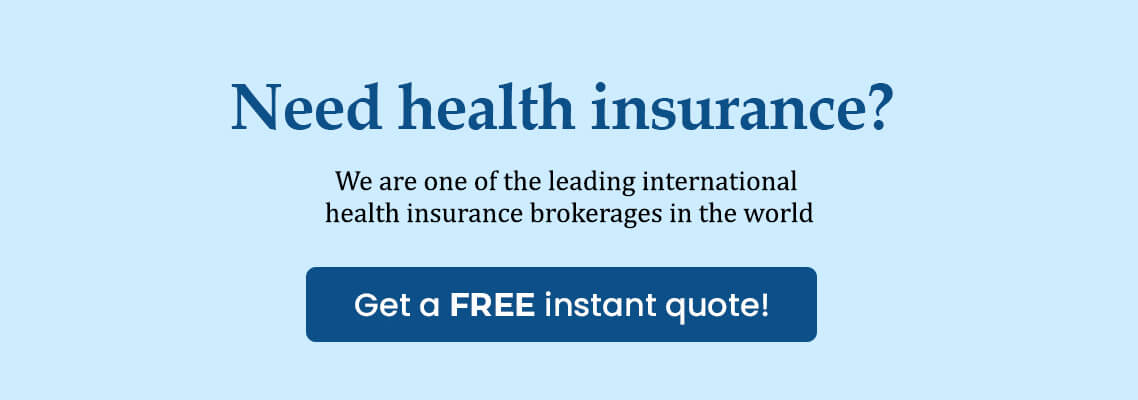Frequently Asked Questions About Family Health Insurance for Expats in Singapore
Raising a family abroad comes with many responsibilities, including ensuring your loved ones have access to quality healthcare. In Singapore, where private medical costs can be high, having the right family health insurance plan is essential for both peace of mind and financial protection.
What’s covered in a family health insurance plan? Can you add your newborn? How do family plans differ between local health insurance and international health insurance options?
In this Pacific Prime CXA article, we answer the most frequently asked questions to help expat families make smarter, more confident insurance decisions, whether you’re new to Singapore, expanding your family, or simply reviewing your current coverage.

FAQ 1: What Does Family Health Insurance Typically Cover in Singapore?
Family health insurance protects expat families from high medical costs while giving access to quality care. In Singapore, plans vary by insurer, but most include inpatient, outpatient, and optional maternity, dental, and wellness coverage.
Inpatient and Emergency Care
Inpatient care covers hospital stays, surgeries, and emergency treatments. This is vital in private hospitals, where a night in a standard ward may cost over SGD $3,000. Plans also cover ICU, diagnostics, and sometimes pre- and post-hospital treatment.
Some international plans add emergency evacuation and repatriation coverage, which is useful if you or your child needs urgent care abroad or repatriation due to serious illness or injury during your stay in Singapore.
Outpatient and Specialist Visits
Outpatient coverage includes GP visits, pediatric care, and follow-up consultations after hospital discharge. Some plans also include diagnostics, lab tests, vaccinations, and physiotherapy sessions within annual or per-visit limits.
Premium international plans may offer direct billing at selected clinics and hospitals, which means you don’t have to pay upfront and wait for reimbursement, making it easier for busy expat parents to manage healthcare needs.
Maternity and Newborn Benefits
Some plans include maternity coverage, which covers prenatal checkups, scans, delivery, and postnatal care. Most require a 10–24 month waiting period, so early enrollment is essential to access full maternity benefits without exclusions.
Newborns may also be covered from birth for complications or congenital conditions if the mother was insured during pregnancy. This protection can reduce financial strain during unexpected medical situations after birth.
Dental and Vision Benefits
Dental and vision benefits are usually optional add-ons to your main policy. Dental may cover exams, cleanings, fillings, and root canals, while vision care can include eye exams, prescription lenses, and frames for children and adults.
Although these benefits increase premiums, they’re helpful for families managing regular checkups or children who need orthodontics or corrective eyewear, both of which can be costly without private coverage in Singapore.
Vaccinations and Preventive Care
Some plans cover preventive services such as child immunizations, wellness screenings, and annual checkups. These help detect conditions early and ensure children meet school or immigration health requirements in Singapore.
Coverage limits vary—some plans offer full coverage for Singapore’s National Childhood Immunisation Schedule, while others cap reimbursement or require you to visit approved clinics only. Review policy terms for clarity.
FAQ 2: Can I Add My Newborn or Dependent Child to My Health Insurance Plan?
Most insurers in Singapore allow you to add a newborn or dependent to your health plan. However, timelines, documentation, and terms vary by provider. Adding your child early helps secure coverage for congenital or birth-related conditions.
Newborn Enrollment Guidelines
Most insurers require you to add your newborn within 30–90 days after birth. If added in time, your baby may receive automatic coverage under the mother’s plan for the first 30 days—ideal for managing any urgent postnatal medical needs.
Enrollment typically involves submitting a birth certificate and completing a short application form. If you delay, the insurer might request medical underwriting or reject coverage for pre-existing or congenital conditions.
Congenital and Neonatal Conditions
Some plans offer limited coverage for congenital and neonatal conditions, such as heart defects or breathing issues diagnosed at birth. This coverage can reduce financial stress during NICU stays or early specialist treatments.
However, not all plans offer this by default. Some insurers may impose sub-limits or exclude certain conditions entirely. Confirm the definitions, limits, and waiting periods with your broker or insurer before enrolling your child.
Adding Older Children or Dependents
Children under 18, or up to 21 if they’re in school full-time, can usually be added to a family plan. Some insurers allow you to add adopted children, stepchildren, or legal dependents with proper documentation and within coverage rules.
Certain international plans may also cover non-family dependents like domestic helpers, depending on your policy. Always check age cutoffs and rules around dependents, especially if you’re insuring more than one child or family member.
Why Early Enrollment Matters
Missing the enrollment window may result in a need for health declarations or exclusion of congenital conditions. It’s best to plan coverage during pregnancy so your newborn is protected from day one, without gaps or surprises.
If your plan includes maternity, your baby may be automatically covered—but only for a limited period. Confirm when automatic coverage ends and take steps to transition them to full coverage under your policy or a separate plan.
FAQ 3: Are International or Local Health Insurance Plans Better for Expat Families?
Choosing between international and local health insurance depends on your family’s needs, lifestyle, and mobility. Both options have pros and cons, so understanding their differences can help you select the most suitable coverage.
Local Health Insurance Plans
Local plans typically provide comprehensive coverage for treatment within Singapore, including inpatient and outpatient care, maternity, and specialist visits. They tend to be more affordable and are designed specifically for Singapore’s healthcare system.
However, local plans usually don’t cover treatment outside Singapore. If you or your family travel frequently or plan to relocate, this limitation could be a drawback.
International Health Insurance Plans
International health insurance plans offer broader coverage across multiple countries, ideal for expat families who travel or relocate often. They typically cover inpatient, outpatient, maternity, and sometimes dental care, with access to global hospital networks.
These plans tend to be more expensive but provide flexibility, portability, and the ability to seek treatment anywhere in the world, which is appealing to many expats.
Which Option Is Best for Your Family?
If your family’s healthcare needs are mostly in Singapore and you don’t travel extensively, a local plan might offer sufficient coverage at a lower cost.
For expat families valuing flexibility, global access, or planning to move to other countries, an international plan provides peace of mind and continuity of care across borders. Pacific Prime CXA can help you navigate these options to find a plan perfectly tailored to your family’s needs and budget.
FAQ 4: How Can Expat Families in Singapore Make Claims and Manage Their Health Insurance Easily?
Managing health insurance claims can seem complicated, especially for expat families new to Singapore. Knowing the correct steps and required documents will help you avoid delays and ensure smooth processing. Being organized and informed can save time and reduce stress during claims.
Claims Submission Process
To submit a claim, most insurers require a completed claim form, original medical receipts, hospital reports, and proof of payment. Some insurers offer direct billing arrangements with specific hospitals or clinics, which means you may not have to pay upfront for eligible treatments.
It is important to submit claims within the insurer’s specified timeframe, usually between 30 and 90 days after treatment. Missing this window can result in claim rejection. Keeping all documents well-organized makes the process faster and less stressful.
Using Digital Tools
Many health insurers now provide online portals and mobile apps for claims submission, policy management, and tracking reimbursements. These digital tools allow you to upload documents, monitor claim status, and receive notifications conveniently from anywhere.
Learning to use these platforms early can save you time and effort. They help busy families handle healthcare administration efficiently without the need for paper forms or lengthy phone calls.
FAQ 5: Are Pre-existing Conditions Covered Under Family Health Insurance Plans in Singapore?
Pre-existing conditions can complicate getting health insurance, but many insurers provide options for expat families with medical histories. Coverage depends on the condition, insurer policies, and disclosure accuracy. Understanding this helps you avoid surprises.
What Counts as a Pre-existing Condition?
Pre-existing conditions include any illness or injury you had before applying for insurance. This might range from chronic diseases like diabetes or asthma to previous surgeries or mental health issues.
Insurers assess risk based on your medical history, which influences premiums and coverage decisions. Full disclosure is essential to avoid claim denials later.
How Insurers Handle Coverage
Some insurers exclude pre-existing conditions altogether, while others offer limited or full coverage after waiting periods or additional premiums. Coverage can vary widely depending on the severity and stability of the condition.
Insurers may also require medical underwriting, where doctors review your health records before approving coverage or setting terms.
Tips for Families with Pre-existing Conditions
To maximize your options, be honest about your medical history and work with a broker experienced in navigating pre-existing conditions. Some international plans provide better flexibility and coverage than local options.
Early disclosure and expert guidance help ensure your family gets appropriate protection without unexpected exclusions.
FAQ 6: Can Family Health Insurance Plans Cover Mental Health Services in Singapore?
Mental health care is crucial for family well-being, and many health plans now include coverage for these services. However, the extent of coverage varies, so understanding what’s included can help your family access the support you need without unexpected costs.
Types of Mental Health Services Covered
Plans may cover outpatient consultations with psychologists or psychiatrists, counseling sessions, and inpatient care for severe mental illnesses. Some also cover therapy for children with behavioral challenges or stress management programs.
It is important to carefully review each plan’s limits on session numbers and annual maximum payouts. Some insurers may require pre-approval before accessing these services, and coverage can vary widely by provider.
Differences Between Local and International Plans
Local health plans often focus on hospital-based mental health services, while international plans tend to offer more comprehensive outpatient mental health benefits and access to a wider network of specialists globally.
Families who prioritize mental wellness and may need care while traveling or relocating often prefer international plans due to their flexibility, extensive provider networks, and broader mental health support options.
How to Ensure Mental Health Coverage
Before purchasing, always check the fine print regarding mental health benefits. Ask about waiting periods, exclusions, and claim procedures. Working with an experienced broker can help clarify these terms and avoid surprises when you need care.
Being proactive about understanding these details helps your family plan for mental health support, ensuring you receive timely, appropriate care without unexpected limitations or out-of-pocket costs.
FAQ 7: What Should Expats Look for When Comparing Family Health Insurance Plans in Singapore?
Choosing a health insurance plan can be overwhelming, especially with so many options available. Expats should focus on key features like coverage, exclusions, flexibility, and network access to ensure their family’s needs are fully supported in Singapore.
Scope of Coverage
Look for comprehensive coverage that includes inpatient, outpatient, maternity, mental health, and chronic condition care. Some plans also offer dental, vision, and wellness benefits, which can be valuable for growing families.
Check if benefits extend internationally, especially if you travel or plan to relocate. Global access, emergency evacuation, and continuity of care across borders are important for mobile expat families seeking long-term protection.
Network and Hospital Access
Make sure your plan provides access to reputable private hospitals and specialists in Singapore. Some insurers limit you to specific providers unless you pay extra, while others offer cashless access within approved hospital networks.
Singapore has many excellent hospitals, but expats need to understand the differences between public and private care, especially when it comes to costs and access.
Choosing a plan with broad hospital access can reduce out-of-pocket expenses and offer more treatment flexibility. Verify if direct billing is available to simplify claims and avoid upfront payments at the time of care.
Flexibility and Customization
Opt for a plan that lets you easily add newborns, dependents, or spouses as your family changes. Some policies also allow you to adjust your deductible, co-pay, or benefit tiers without cancelling and reapplying for coverage, which simplifies long-term management.
Plans with modular structures are ideal for expats. You can tailor benefits to match your current stage of life, whether you’re planning a baby, relocating, or dealing with new health concerns. This flexibility ensures your plan stays relevant as your needs evolve.
How Pacific Prime CXA Can Help You

Securing family health insurance isn’t just about ticking a box—it’s about ensuring your loved ones are protected in every scenario. With the right plan, expat families in Singapore can access top-tier care, manage rising healthcare costs, and enjoy peace of mind year-round.
International family health insurance often offers wider benefits than basic coverage, including global hospital access, wellness services, and mental health support. With expert help, you can find a policy that fits your family’s unique needs, without overpaying or missing key benefits.
With over 25 years of experience, Pacific Prime CXA makes comparing plans simple, explains complex terms, and helps you enrol with confidence. Whether you’re just moving to Singapore or reviewing your current plan, we’re here to support every step of the journey.
Contact us today to explore your options, or get a free quote now using our online tool.
- Post-Hospital Care and Rehabilitation Services in Singapore for Expats - August 11, 2025
- Frequently Asked Questions About Family Health Insurance for Expats in Singapore - August 11, 2025
- Can You Get Health Insurance in Singapore with a Pre-existing Condition? - August 11, 2025







Comments
Comments for this post are closed.
We'll notify you
when our team replies!